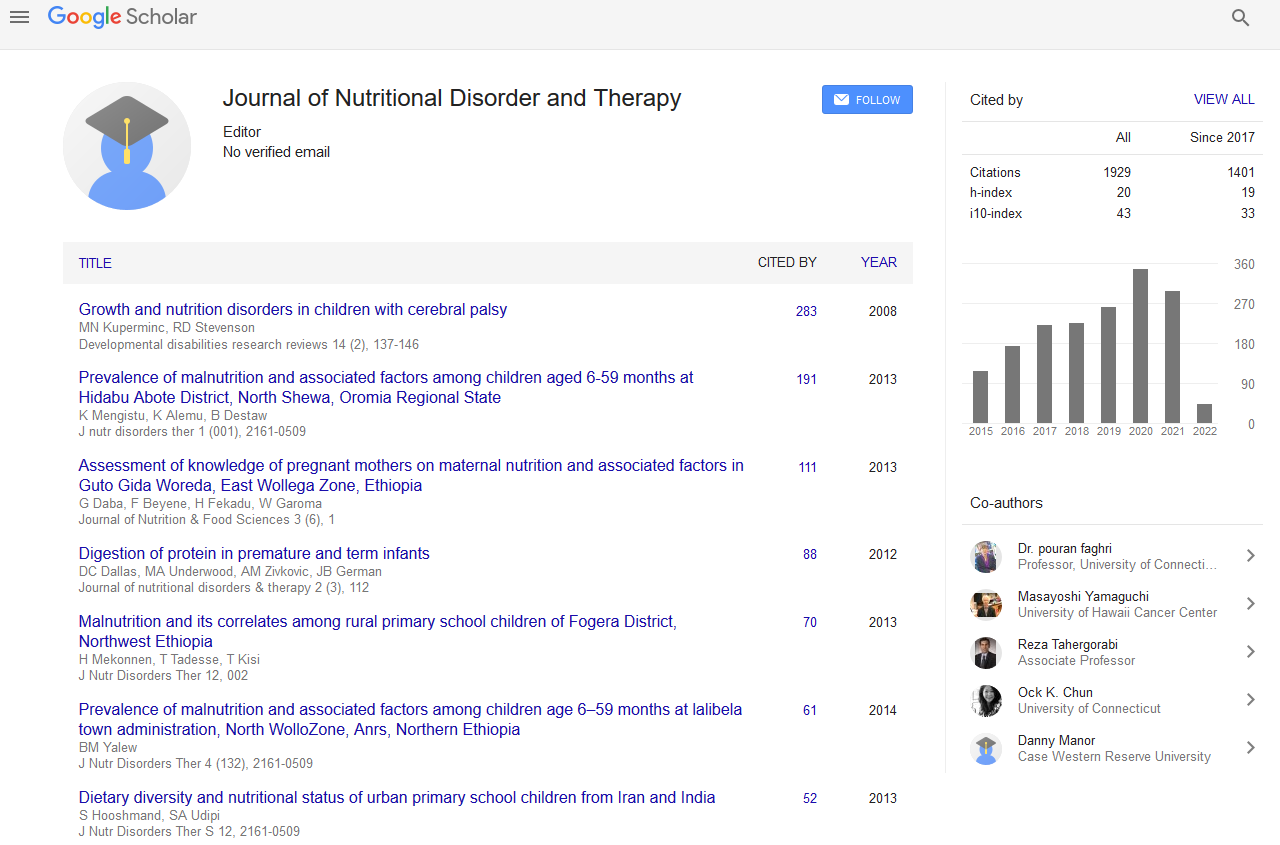Indexed In
- Open J Gate
- Genamics JournalSeek
- Academic Keys
- JournalTOCs
- Ulrich's Periodicals Directory
- RefSeek
- Hamdard University
- EBSCO A-Z
- OCLC- WorldCat
- Publons
- Geneva Foundation for Medical Education and Research
- Euro Pub
Useful Links
Share This Page
Journal Flyer

Open Access Journals
- Agri and Aquaculture
- Biochemistry
- Bioinformatics & Systems Biology
- Business & Management
- Chemistry
- Clinical Sciences
- Engineering
- Food & Nutrition
- General Science
- Genetics & Molecular Biology
- Immunology & Microbiology
- Medical Sciences
- Neuroscience & Psychology
- Nursing & Health Care
- Pharmaceutical Sciences
Can the phytochemical L-sulforaphane, found in broccoli rewire metabolism to improve health?
15th International Conference on Clinical Nutrition
May 24-26, 2018 | Vienna, Austria
Alex Lloyd
Dublin Institute of Technology, Ireland
Posters & Accepted Abstracts: J Nutr Disorders Ther
Abstract:
Cardiovascular diseases (CVD) are the number one cause of death worldwide. According to the World Health Organization in 2012, 17.5 million people died from CVD. Oxidative stress and inflammation are implicated as factors in diseases such as hypertension and atherosclerosis. The beneficial effects of a diet rich in fruits and vegetables is well recognized. In recent years, the isothiocyante L-Sulforaphane (SFN), the metabolically active component derived from glucoraphanin, has been shown to have potential therapeutic benefit. SFN is abundant in cruciferous vegetables and is a potent inducer of phase II detoxification in the liver. It is also a biological antioxidant and induces the expression of antioxidant genes in the body with protective effects in diseases such as CVD and diabetes. Finally, SFN is a histone deacetylase inhibitor (HDACi) which promotes gene expression by causing hyperacetylation of histones, leading to a less condensed and more transcriptionally active chromatin. The sum of these activities indicates that SFN can rewire metabolic pathways to reduced blood lipids, reduce glucose improve sensitivity to insulin and inhibit fat tissue formation. The goal of this project is to complete a novel dietary intervention study to define the in vivo efficacy of a broccoli sprout juice on clinical markers of CVD and diabetes. At this stage we are working on defining the effects of SFN on cells from blood samples from genetically suitable candidates (polymorphisms in the gluthathione S transferase genes) to identify key endpoints, necessary to optimise the intervention study. alex-lloyd@hotmail.com J


